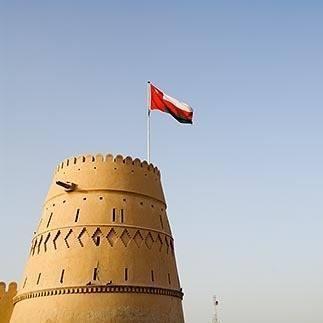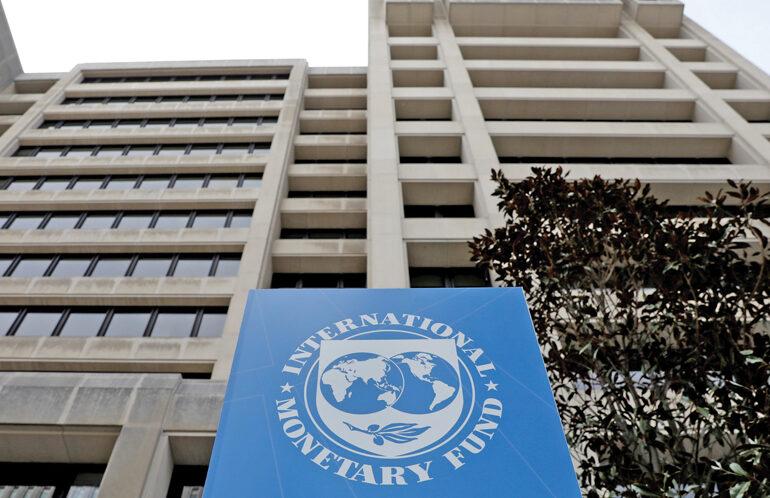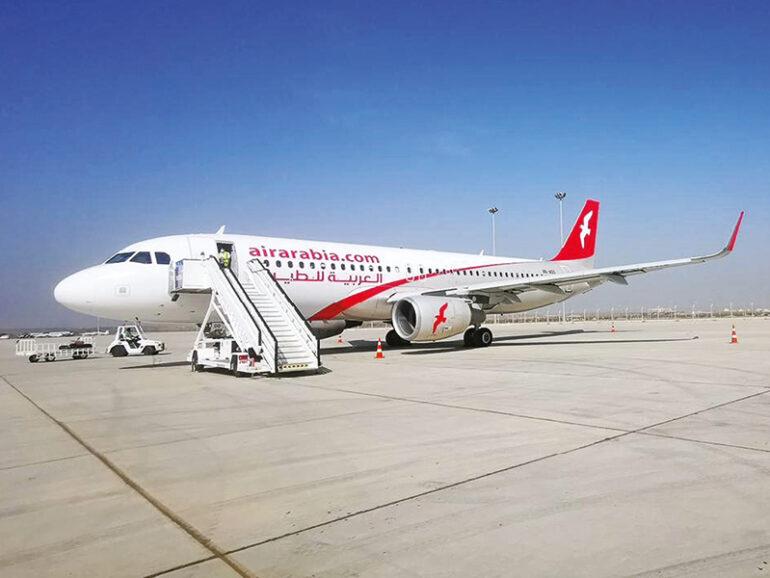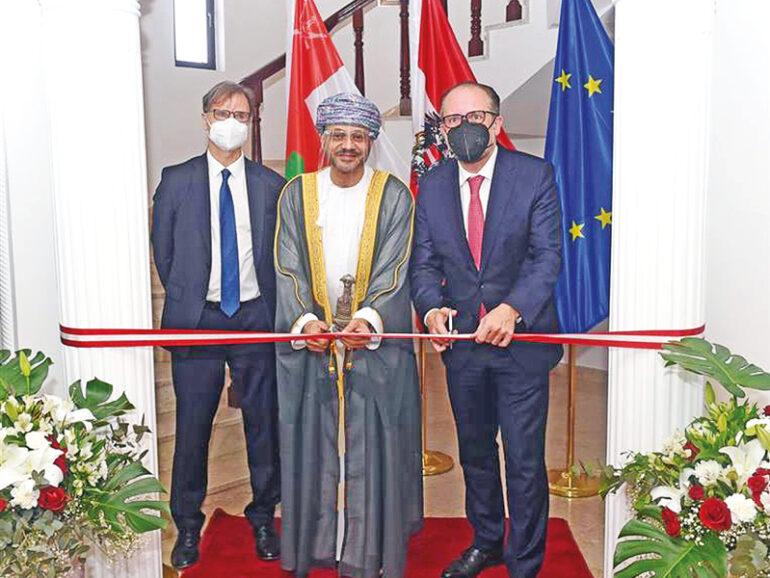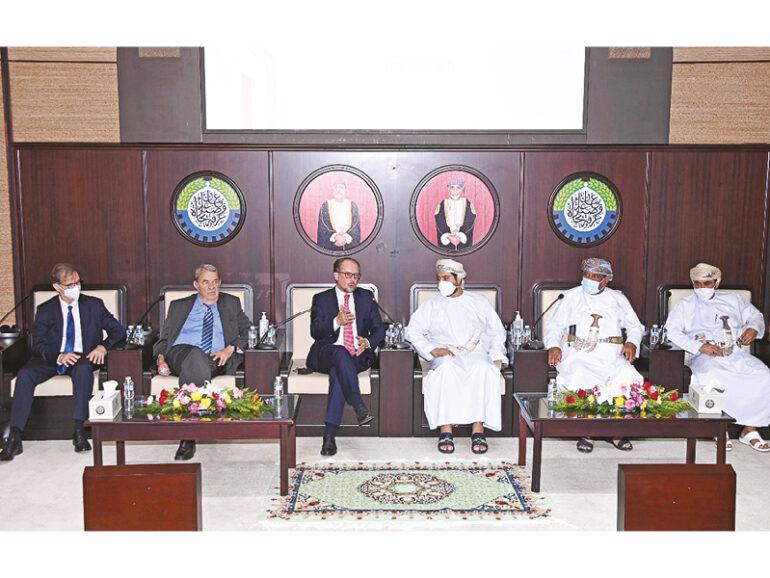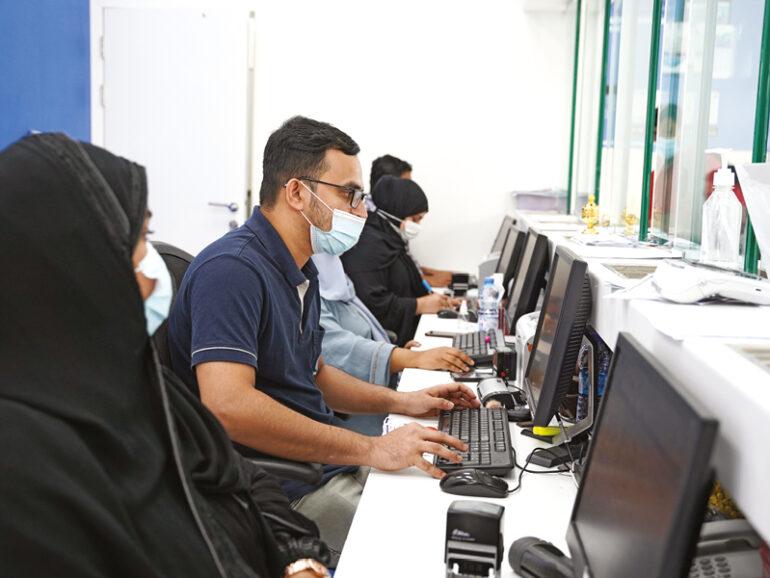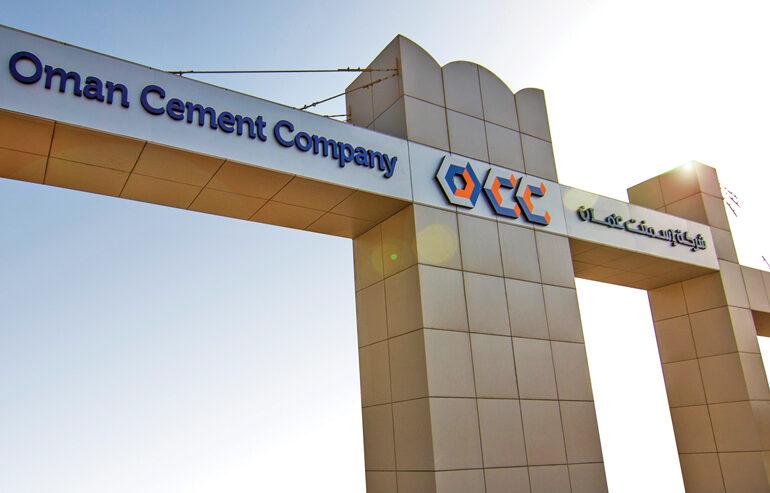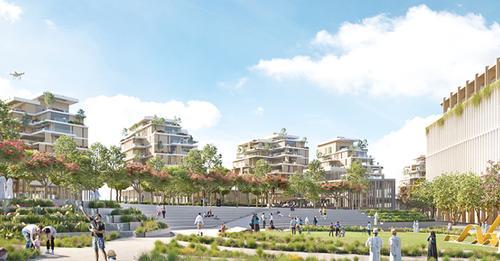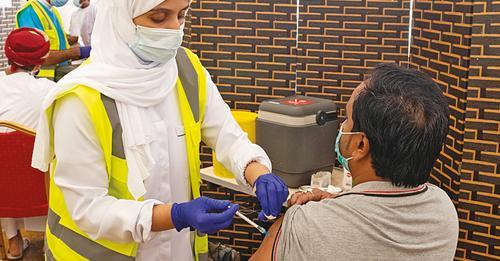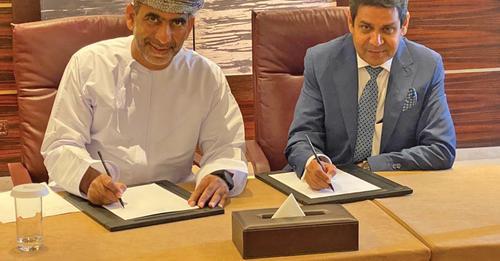Oman News
-
3 A la gente le gusta esto.
-
0 Entradas
-
0 Fotos
-
0 Videos
-
History and Facts
© 2025 Omaada - A global social and professionals networking platform
 Spanish
Spanish
Actualizaciones Recientes
-
Oman’s budget may return to surplus in 2022: IMF
Muscat – Oman’s budget deficit and government debt rose sharply in 2020 but are projected to improve considerably over the medium-term with the implementation of the sultanate’s Medium-Term Fiscal Balance Plan, the International Monetary Fund (IMF) said.
‘The sultanate’s fiscal deficit widened to 19.3 per cent of GDP in 2020 but it is projected to decline to -2.4 per cent in 2021 and a surplus in 2022,’ the IMF said in a statement on Sunday. The executive board of the IMF has concluded the Article IV Consultation with Oman.
According to the IMF, Oman’s central government debt rose to 81.2 per cent of GDP last year but is expected to decline sharply over the medium term.
‘Fiscal consolidation and higher oil prices are projected to narrow the current account deficit to -6.2 per cent in 2021 and -0.6 per cent in 2026,’ it said.
As per the IMF’s estimates, Oman’s real GDP – which contracted by 2.8 per cent in 2020 – is expected to grow by 2.5 per cent this year and by 2.9 per cent in 2022.
The fund, however, said that there are substantial uncertainties around the outlook, with downside risks dominating.
‘On the downside, COVID-19 variants would prolong the impact of the pandemic. Tighter global financial conditions could worsen the fiscal and external positions.’
‘On the upside, a strong rollout of vaccination, higher oil prices, and continued implementation of structural reforms would considerably improve the outlook,’ the IMF added.
The executive directors of the IMF commended the Omani authorities’ swift and well-coordinated policy actions to address the health and economic effects of the COVID-19 pandemic.
Looking ahead, the IMF emphasised that the sultanate’s macroeconomic policies should remain supportive until the recovery is fully entrenched and underscored providing additional time-bound and targeted policy measures for hard-hit sectors and households if needed.
‘The directors welcomed recent progress in structural reforms aiming at boosting non-hydrocarbon sector growth and supporting external sustainability. Priority should be given to improving flexibility in the labour market, promoting employment in the private sector, and further encouraging female labour participation,’ the IMF said.Oman’s budget may return to surplus in 2022: IMF Muscat – Oman’s budget deficit and government debt rose sharply in 2020 but are projected to improve considerably over the medium-term with the implementation of the sultanate’s Medium-Term Fiscal Balance Plan, the International Monetary Fund (IMF) said. ‘The sultanate’s fiscal deficit widened to 19.3 per cent of GDP in 2020 but it is projected to decline to -2.4 per cent in 2021 and a surplus in 2022,’ the IMF said in a statement on Sunday. The executive board of the IMF has concluded the Article IV Consultation with Oman. According to the IMF, Oman’s central government debt rose to 81.2 per cent of GDP last year but is expected to decline sharply over the medium term. ‘Fiscal consolidation and higher oil prices are projected to narrow the current account deficit to -6.2 per cent in 2021 and -0.6 per cent in 2026,’ it said. As per the IMF’s estimates, Oman’s real GDP – which contracted by 2.8 per cent in 2020 – is expected to grow by 2.5 per cent this year and by 2.9 per cent in 2022. The fund, however, said that there are substantial uncertainties around the outlook, with downside risks dominating. ‘On the downside, COVID-19 variants would prolong the impact of the pandemic. Tighter global financial conditions could worsen the fiscal and external positions.’ ‘On the upside, a strong rollout of vaccination, higher oil prices, and continued implementation of structural reforms would considerably improve the outlook,’ the IMF added. The executive directors of the IMF commended the Omani authorities’ swift and well-coordinated policy actions to address the health and economic effects of the COVID-19 pandemic. Looking ahead, the IMF emphasised that the sultanate’s macroeconomic policies should remain supportive until the recovery is fully entrenched and underscored providing additional time-bound and targeted policy measures for hard-hit sectors and households if needed. ‘The directors welcomed recent progress in structural reforms aiming at boosting non-hydrocarbon sector growth and supporting external sustainability. Priority should be given to improving flexibility in the labour market, promoting employment in the private sector, and further encouraging female labour participation,’ the IMF said.0 Commentarios 0 Acciones 0 Vista previaPlease log in to like, share and comment! -
International flights return to Sohar
Muscat – Sohar Airport saw the return of international flights after more than a year on Monday when an Air Arabia flight landed at the airport, marking the beginning of seven daily flights between Sohar and Sharjah, UAE.
‘In a commitment to enhance air traffic in the sultanate, the efforts of a specialised team at Oman Airports culminated in the return of international operations at Sohar Airport this morning,’ Oman Airports stated.
Oman Airports had initially announced that Air Arabia will be operating three weekly flights from Sharjah International Airport to Sohar. It, however, announced on Monday that the flights will be expanded to seven every week. ‘The flights are resuming at Sohar Airport by following the new travel protocols adopted at the sultanate’s airports in line with the national efforts to tackle the COVID-19 pandemic.’
Mohammed al Shuaili, vice president of regional airports, Oman Airports, said, “Oman Airports, represented by its commercial units, seeks cooperation and coordination with its strategic partners. To draw clear plans of action to ensure the sustainability and success of Sohar Airport, the authority is focusing on international flights as well domestic operations, and the efforts have been successful in getting these daily Air Arabia flights.”
He was hopeful that the frequency of flights at the airport will soon increase to that of pre-pandemic days. “Efforts are ongoing to attract new direct flights to domestic airports.”
Ali bin Thani al Khaifi, director of Sohar Airport, said, “We are ready to welcome all local and international airlines.”
He added that the airport is applying the highest standards of health and safety in implementation of the precautionary measures. “The procedures have been approved by the competent authorities and adopted to ensure a safe and smooth travel for all users of Sohar Airport.”International flights return to Sohar Muscat – Sohar Airport saw the return of international flights after more than a year on Monday when an Air Arabia flight landed at the airport, marking the beginning of seven daily flights between Sohar and Sharjah, UAE. ‘In a commitment to enhance air traffic in the sultanate, the efforts of a specialised team at Oman Airports culminated in the return of international operations at Sohar Airport this morning,’ Oman Airports stated. Oman Airports had initially announced that Air Arabia will be operating three weekly flights from Sharjah International Airport to Sohar. It, however, announced on Monday that the flights will be expanded to seven every week. ‘The flights are resuming at Sohar Airport by following the new travel protocols adopted at the sultanate’s airports in line with the national efforts to tackle the COVID-19 pandemic.’ Mohammed al Shuaili, vice president of regional airports, Oman Airports, said, “Oman Airports, represented by its commercial units, seeks cooperation and coordination with its strategic partners. To draw clear plans of action to ensure the sustainability and success of Sohar Airport, the authority is focusing on international flights as well domestic operations, and the efforts have been successful in getting these daily Air Arabia flights.” He was hopeful that the frequency of flights at the airport will soon increase to that of pre-pandemic days. “Efforts are ongoing to attract new direct flights to domestic airports.” Ali bin Thani al Khaifi, director of Sohar Airport, said, “We are ready to welcome all local and international airlines.” He added that the airport is applying the highest standards of health and safety in implementation of the precautionary measures. “The procedures have been approved by the competent authorities and adopted to ensure a safe and smooth travel for all users of Sohar Airport.”0 Commentarios 0 Acciones 0 Vista previa -
Austria opens new embassy in Muscat
13 SEP 2021
Muscat – Alexander Schallenberg, Federal Minister for Europe, Integration and Foreign Affairs of the Republic of Austria, on Monday inaugurated the new premises of the Austrian Embassy in Muscat, in the presence of Oman’s Foreign Minister H E Sayyid Badr bin Hamad al Busaidi.
Schallenberg said that the opening of the embassy premises is an important step in order to activate relations between the two friendly countries, stressing that the embassy will work to enhance aspects of joint cooperation, especially in commercial fields.
“Opening an embassy for sure is the most beautiful duty as a foreign minister. There is much potential for our cooperation, including in the spheres of economy and tourism. I’m very much looking forward to further deepening our bilateral relations,” Schallenberg tweeted.
H E Sayyid Badr said that the opening of the embassy will contribute to strengthening the friendship and cooperation between the two countries in the cultural, tourism and commercial fields, and there is a desire on both sides to develop these relations and push them towards wider horizons.
“Pleased to welcome Foreign Minister Alexander Schallenberg and attend the opening of the Austrian chancery in Muscat. Also delighted to sign the Oman-Austria Political Consultations MoU marking another milestone in our bilateral relations,” H E Sayyid Badr tweeted.
Monday’s ceremony was attended by the head of the Protocol Department at the Foreign Ministry of Oman, the head of the minister’s office and a number of other officials in the ministry, besides the Austrian ambassador accredited to the sultanate, members of the embassy and the delegation accompanying Schallenberg.Austria opens new embassy in Muscat 13 SEP 2021 Muscat – Alexander Schallenberg, Federal Minister for Europe, Integration and Foreign Affairs of the Republic of Austria, on Monday inaugurated the new premises of the Austrian Embassy in Muscat, in the presence of Oman’s Foreign Minister H E Sayyid Badr bin Hamad al Busaidi. Schallenberg said that the opening of the embassy premises is an important step in order to activate relations between the two friendly countries, stressing that the embassy will work to enhance aspects of joint cooperation, especially in commercial fields. “Opening an embassy for sure is the most beautiful duty as a foreign minister. There is much potential for our cooperation, including in the spheres of economy and tourism. I’m very much looking forward to further deepening our bilateral relations,” Schallenberg tweeted. H E Sayyid Badr said that the opening of the embassy will contribute to strengthening the friendship and cooperation between the two countries in the cultural, tourism and commercial fields, and there is a desire on both sides to develop these relations and push them towards wider horizons. “Pleased to welcome Foreign Minister Alexander Schallenberg and attend the opening of the Austrian chancery in Muscat. Also delighted to sign the Oman-Austria Political Consultations MoU marking another milestone in our bilateral relations,” H E Sayyid Badr tweeted. Monday’s ceremony was attended by the head of the Protocol Department at the Foreign Ministry of Oman, the head of the minister’s office and a number of other officials in the ministry, besides the Austrian ambassador accredited to the sultanate, members of the embassy and the delegation accompanying Schallenberg.0 Commentarios 0 Acciones 0 Vista previa -
Officials inspect Rub al Khali border post
Muscat – A joint team of Oman and Saudi security officials on Tuesday visited the Rub al Khali border post connecting Saudi Arabia for its early opening.
Based on the direction to expedite the opening of land borders between Oman and Saudi Arabia that resulted from His Majesty Sultan Haitham bin Tarik’s state visit to Saudi Arabia in July, the security delegation of both countries visited the border following a joint security meeting on Monday.
‘As part of the work of the joint working group emanating from the joint Supreme Security Committee between Oman and Saudi Arabia, the team made an inspection visit to the Rub al Khali border post,’ stated the Royal Oman Police (ROP).
The visit comes on the sidelines of the joint security meeting, which started on Monday with its first session in the sultanate, the ROP statement added.
‘The meeting included a discussion on bilateral relations and aspects of cooperation between the two sides in various joint security fields,’ the ROP said.
In a joint statement issued by Oman and Saudi Arabia after the conclusion of His Majesty the Sultan’s visit to Saudi Arabia, it was said that the both parties agreed ‘to direct the concerned bodies to expedite the opening of the direct land route and border crossing, which will contribute to the smooth movement of citizens of the two countries and the integration of supply chains as a prelude to achieving economic integration between the two brotherly countries’.
The firstever road linking Oman with Saudi Arabia, that has been delayed for years now, will not only cut down distance between the two countries by around 800km but also reduce travel time considerably.
The road passes through Rub al Khali and the eastern province of Ihsa in Saudi Arabia. Currently, one has to go through the United Arab Emirates to reach the kingdom.
Oman, Saudi explore joint ventures in transport, logistics
H E Eng Khamis Mohammed al Shamakhi, Undersecretary for Transport in the Ministry of Transport, Communications and IT (pictured), on Tuesday held a meeting with Dr Mansour Abdulhamid al Turki, Deputy Minister of Planning and Information of the Kingdom of Saudi Arabia, to review the areas of common goals.
The meeting, held via videoconferencing, reviewed the major features and goals of the National Strategy for Transport and Logistics Services (NTLS) of Saudi Arabia, said a statement. It also explored means of promoting the existing cooperation between the two countries in the fields of transportation and logistics.
The meeting explored initiatives, joint ventures, available investment opportunities, besides assessing benefits drawn from experiences, and exchanging expertise in implementing infrastructures for transport projects by utilising advanced technologies to achieve goals of Oman Vision 2040 and Saudi Vision 2030.Officials inspect Rub al Khali border post Muscat – A joint team of Oman and Saudi security officials on Tuesday visited the Rub al Khali border post connecting Saudi Arabia for its early opening. Based on the direction to expedite the opening of land borders between Oman and Saudi Arabia that resulted from His Majesty Sultan Haitham bin Tarik’s state visit to Saudi Arabia in July, the security delegation of both countries visited the border following a joint security meeting on Monday. ‘As part of the work of the joint working group emanating from the joint Supreme Security Committee between Oman and Saudi Arabia, the team made an inspection visit to the Rub al Khali border post,’ stated the Royal Oman Police (ROP). The visit comes on the sidelines of the joint security meeting, which started on Monday with its first session in the sultanate, the ROP statement added. ‘The meeting included a discussion on bilateral relations and aspects of cooperation between the two sides in various joint security fields,’ the ROP said. In a joint statement issued by Oman and Saudi Arabia after the conclusion of His Majesty the Sultan’s visit to Saudi Arabia, it was said that the both parties agreed ‘to direct the concerned bodies to expedite the opening of the direct land route and border crossing, which will contribute to the smooth movement of citizens of the two countries and the integration of supply chains as a prelude to achieving economic integration between the two brotherly countries’. The firstever road linking Oman with Saudi Arabia, that has been delayed for years now, will not only cut down distance between the two countries by around 800km but also reduce travel time considerably. The road passes through Rub al Khali and the eastern province of Ihsa in Saudi Arabia. Currently, one has to go through the United Arab Emirates to reach the kingdom. Oman, Saudi explore joint ventures in transport, logistics H E Eng Khamis Mohammed al Shamakhi, Undersecretary for Transport in the Ministry of Transport, Communications and IT (pictured), on Tuesday held a meeting with Dr Mansour Abdulhamid al Turki, Deputy Minister of Planning and Information of the Kingdom of Saudi Arabia, to review the areas of common goals. The meeting, held via videoconferencing, reviewed the major features and goals of the National Strategy for Transport and Logistics Services (NTLS) of Saudi Arabia, said a statement. It also explored means of promoting the existing cooperation between the two countries in the fields of transportation and logistics. The meeting explored initiatives, joint ventures, available investment opportunities, besides assessing benefits drawn from experiences, and exchanging expertise in implementing infrastructures for transport projects by utilising advanced technologies to achieve goals of Oman Vision 2040 and Saudi Vision 2030.0 Commentarios 0 Acciones 0 Vista previa -
Meet looks to spur Oman-Austria trade
Muscat – Oman Chamber of Commerce and Industry (OCCI) organised a meeting with the visiting Austrian delegation on ways of upgrading economic cooperation and establishing joint investments on Monday evening.
Held at the premises of the OCCI, the meeting was part of the programme of the Austrian delegation that visited the sultanate under the leadership of Alexander Schallenberg, Federal Minister for European and International Affairs.
The meeting marked the start of partnerships that will benefit both sides, stated OCCI.
The meeting was attended by H E Qais Mohammed al Yousef, Minister of Commerce, Industry and Investment Promotion, the Austrian minister, Eng Redha Jumaa al Saleh, board chairman of OCCI, and members of the OCCI and the visiting delegation.
“The meeting discussed means of fostering bilateral cooperation and mechanisms of activating economic cooperation and investment. This visit constitutes a starting point for the establishment of fruitful partnerships benefiting both sides,” said Eng Redha.
He added that the OCCI is keen that this visit would yield new partnerships between businesses in the sultanate and their Austrian counterparts.
Statistics show that Oman’s imports from Austria stood at more than US$444,000 during 2019 while Omani exports to Austria in the same year crossed the US$3.5mn mark.
“Today’s meeting seeks to raise the rates of commercial exchange between the two countries, besides forging business partnerships in various economic spheres and concluding a set of cooperation agreements,” said Eng Redha.
Schallenberg said that such meetings help cementing cooperation and contributing to the creation of joint investment projects benefiting from readily available resources and incentives offered by both countries to the business community.
“We have the expertise and enablers to activate economic ties and raise the rates of commercial exchange,” Schallenberg said.
Echoing a similar view, H E Yousef said, “The meeting aims to generate joint ventures and activate ties of cooperation between the two countries.”
A visual display titled ‘Trade and Investment in the Sultanate’ was presented by Naseema Yahya al Balushi, director general of Investment Promotion at the Ministry of Commerce, Industry and Investment Promotion.
The presentation highlighted the attractive investment climate in the sultanate and the encouraging incentives offered to investors, including the freedom to transfer funds abroad, as much as 100 per cent ownership of business projects, transparency in laws and regulations and other privileges and advantages.Meet looks to spur Oman-Austria trade Muscat – Oman Chamber of Commerce and Industry (OCCI) organised a meeting with the visiting Austrian delegation on ways of upgrading economic cooperation and establishing joint investments on Monday evening. Held at the premises of the OCCI, the meeting was part of the programme of the Austrian delegation that visited the sultanate under the leadership of Alexander Schallenberg, Federal Minister for European and International Affairs. The meeting marked the start of partnerships that will benefit both sides, stated OCCI. The meeting was attended by H E Qais Mohammed al Yousef, Minister of Commerce, Industry and Investment Promotion, the Austrian minister, Eng Redha Jumaa al Saleh, board chairman of OCCI, and members of the OCCI and the visiting delegation. “The meeting discussed means of fostering bilateral cooperation and mechanisms of activating economic cooperation and investment. This visit constitutes a starting point for the establishment of fruitful partnerships benefiting both sides,” said Eng Redha. He added that the OCCI is keen that this visit would yield new partnerships between businesses in the sultanate and their Austrian counterparts. Statistics show that Oman’s imports from Austria stood at more than US$444,000 during 2019 while Omani exports to Austria in the same year crossed the US$3.5mn mark. “Today’s meeting seeks to raise the rates of commercial exchange between the two countries, besides forging business partnerships in various economic spheres and concluding a set of cooperation agreements,” said Eng Redha. Schallenberg said that such meetings help cementing cooperation and contributing to the creation of joint investment projects benefiting from readily available resources and incentives offered by both countries to the business community. “We have the expertise and enablers to activate economic ties and raise the rates of commercial exchange,” Schallenberg said. Echoing a similar view, H E Yousef said, “The meeting aims to generate joint ventures and activate ties of cooperation between the two countries.” A visual display titled ‘Trade and Investment in the Sultanate’ was presented by Naseema Yahya al Balushi, director general of Investment Promotion at the Ministry of Commerce, Industry and Investment Promotion. The presentation highlighted the attractive investment climate in the sultanate and the encouraging incentives offered to investors, including the freedom to transfer funds abroad, as much as 100 per cent ownership of business projects, transparency in laws and regulations and other privileges and advantages.0 Commentarios 0 Acciones 0 Vista previa -
Oman ranks high in ‘New Work’ culture
Muscat – Oman has ranked 17th in a survey that studied the functioning and effectiveness of the new work culture that has been forced on the world due to the COVID-19 pandemic. The ‘Importance of New Work in the local business culture’ ranking, in which Oman occupies a prominent position, has been done by InterNations, one of the largest international community for people who live and work abroad through its Expat Insider 2021 survey recently.
In the GCC, UAE leads with second position globally, followed by Bahrain at sixth, Oman (17th), Qatar (18th), Saudi Arabia (19th) and Kuwait (50th).
The top ten countries where expats rate the importance of ‘New Work in the local business culture’, the highest number comes from the US, followed by the UAE, Finland, Estonia, the Netherlands, Bahrain, Australia, Canada, New Zealand and Sweden.
The pandemic induced new normal has spawned a culture of ‘New Work’, to which the factors such as autonomy, freedom, creativity, personal development and self-fulfillment are closely linked to describe the new way of working in the global and digital age.
Almost 74 per cent of the working expats in the US say that ‘New Work’ plays an important role in the local business culture.
When asked to compare the importance of ‘New Work’ in their home countries and their current country of residence, 49 per cent of the working expats reached out through the survey said that the ‘New Work’ is more important in the business culture of their host country than in their home country.
Working expats from Mexico (74 per cent), the Philippines (65 per cent), Turkey (61 per cent), India (60 per cent), and Italy (59 per cent) see the difference to be huge when compared to their home countries.
In fact, their home countries do not rank particularly well when it comes to the importance of ‘New Work in the local business culture’, as rated by other expats.
Mexico is the best out of these five countries, landing on the 33rd place out of 55. It is followed by the Philippines (40th), while Italy (49th), India (51st) and Turkey (52nd) ended up among the bottom ten worldwide.
Overall, Japan (55th), Egypt, South Korea, Turkey, India, Kuwait, Italy, Spain, France, and China (46th) are the ten countries where expats rate the concept of the ‘New Work’ relatively unimportant in the business culture.
For example, 40 per cent of the expats in Japan say that the ‘New Work’ is not important in the local business world as against 18 per cent having a similar view globally.
Working remotely
One aspect of the ‘New Work’ is already an everyday occurrence for many working expats: Close to four in five (78 per cent) are able to work remotely in 2021, the survey found.
However, while 62 per cent say that they can work remotely, only 16 per cent say that they prefer not to despite their abilities to do so. Another 16 per cent are unable to work remotely due to the nature of their job, and only six per cent cannot work remotely because their employer does not allow it.
Overall, 65 per cent of the surveyed workers enjoy working remotely: More than a quarter (28 per cent) even like it very much, while just three per cent expressed their total dislike for it.
The pandemic had an effect on the remote work policies for expat employees: Nearly three in ten (28 per cent) are now able to work remotely more often than before, while another 20 per cent say remote work has been newly introduced and is here to stay.Oman ranks high in ‘New Work’ culture Muscat – Oman has ranked 17th in a survey that studied the functioning and effectiveness of the new work culture that has been forced on the world due to the COVID-19 pandemic. The ‘Importance of New Work in the local business culture’ ranking, in which Oman occupies a prominent position, has been done by InterNations, one of the largest international community for people who live and work abroad through its Expat Insider 2021 survey recently. In the GCC, UAE leads with second position globally, followed by Bahrain at sixth, Oman (17th), Qatar (18th), Saudi Arabia (19th) and Kuwait (50th). The top ten countries where expats rate the importance of ‘New Work in the local business culture’, the highest number comes from the US, followed by the UAE, Finland, Estonia, the Netherlands, Bahrain, Australia, Canada, New Zealand and Sweden. The pandemic induced new normal has spawned a culture of ‘New Work’, to which the factors such as autonomy, freedom, creativity, personal development and self-fulfillment are closely linked to describe the new way of working in the global and digital age. Almost 74 per cent of the working expats in the US say that ‘New Work’ plays an important role in the local business culture. When asked to compare the importance of ‘New Work’ in their home countries and their current country of residence, 49 per cent of the working expats reached out through the survey said that the ‘New Work’ is more important in the business culture of their host country than in their home country. Working expats from Mexico (74 per cent), the Philippines (65 per cent), Turkey (61 per cent), India (60 per cent), and Italy (59 per cent) see the difference to be huge when compared to their home countries. In fact, their home countries do not rank particularly well when it comes to the importance of ‘New Work in the local business culture’, as rated by other expats. Mexico is the best out of these five countries, landing on the 33rd place out of 55. It is followed by the Philippines (40th), while Italy (49th), India (51st) and Turkey (52nd) ended up among the bottom ten worldwide. Overall, Japan (55th), Egypt, South Korea, Turkey, India, Kuwait, Italy, Spain, France, and China (46th) are the ten countries where expats rate the concept of the ‘New Work’ relatively unimportant in the business culture. For example, 40 per cent of the expats in Japan say that the ‘New Work’ is not important in the local business world as against 18 per cent having a similar view globally. Working remotely One aspect of the ‘New Work’ is already an everyday occurrence for many working expats: Close to four in five (78 per cent) are able to work remotely in 2021, the survey found. However, while 62 per cent say that they can work remotely, only 16 per cent say that they prefer not to despite their abilities to do so. Another 16 per cent are unable to work remotely due to the nature of their job, and only six per cent cannot work remotely because their employer does not allow it. Overall, 65 per cent of the surveyed workers enjoy working remotely: More than a quarter (28 per cent) even like it very much, while just three per cent expressed their total dislike for it. The pandemic had an effect on the remote work policies for expat employees: Nearly three in ten (28 per cent) are now able to work remotely more often than before, while another 20 per cent say remote work has been newly introduced and is here to stay.0 Commentarios 0 Acciones 0 Vista previa -
OCC to invest $300mn to boost cement production
Muscat – Oman Cement Company (OCC) on Tuesday announced that it will invest US$300mn to boost cement output by installing a new production line which will help the sultanate achieve self-sufficiency in cement.
The company will set up a new cement production line with a capacity of 10,000 metric tonnes per day. Oman Cement will also increase the capacity of its third production line from 4,000 tonnes per day to 5,000 tonnes per day.
As a result of this expansion, Oman Cement’s total daily production capacity will increase to 15,000 tonnes per day, which is considered the largest cement production of its kind in the sultanate, the company said in a statement on Tuesday.
Oman Cement said that the expansion project will raise the company’s production cost-effectiveness, increase its competitive advantage and promote its success in the local and international markets.
This step, Oman Cement said, comes as part of the company’s efforts to promote self-sufficiency of cement in the sultanate and reduce cement imports. Oman imports about 50 per cent of its cement requirements.
Salem bin Abdullah al Hajri, CEO of Oman Cement Company, said that the estimated cost of the new production line is amounted to be around US$300mn.
“The introduction of this new production line comes as part of the efforts exerted by the company to support the Omani government’s plans to diversify the sources of income in line with
Vision 2040. This new production line will achieve self-sufficiency of cement in the sultanate by 2024,” he said.
Hajri emphasised that the new production line reflects Oman Cement’s contribution in fulfilling the Omani government’s aspirations to achieve self-sufficiency of cement production and upgrade the cement industry to keep up with the current developments in this field worldwide.
He said that the new production line would offer high quality cement at competitive prices, which would be lower than the prices of imported cement.
Hajari further stated that the new production line would operate according to the highest standards and would employ the most sophisticated technology used in cement production worldwide such as the self-control technology that is being utilised in the management of operations and manufacturing.OCC to invest $300mn to boost cement production Muscat – Oman Cement Company (OCC) on Tuesday announced that it will invest US$300mn to boost cement output by installing a new production line which will help the sultanate achieve self-sufficiency in cement. The company will set up a new cement production line with a capacity of 10,000 metric tonnes per day. Oman Cement will also increase the capacity of its third production line from 4,000 tonnes per day to 5,000 tonnes per day. As a result of this expansion, Oman Cement’s total daily production capacity will increase to 15,000 tonnes per day, which is considered the largest cement production of its kind in the sultanate, the company said in a statement on Tuesday. Oman Cement said that the expansion project will raise the company’s production cost-effectiveness, increase its competitive advantage and promote its success in the local and international markets. This step, Oman Cement said, comes as part of the company’s efforts to promote self-sufficiency of cement in the sultanate and reduce cement imports. Oman imports about 50 per cent of its cement requirements. Salem bin Abdullah al Hajri, CEO of Oman Cement Company, said that the estimated cost of the new production line is amounted to be around US$300mn. “The introduction of this new production line comes as part of the efforts exerted by the company to support the Omani government’s plans to diversify the sources of income in line with Vision 2040. This new production line will achieve self-sufficiency of cement in the sultanate by 2024,” he said. Hajri emphasised that the new production line reflects Oman Cement’s contribution in fulfilling the Omani government’s aspirations to achieve self-sufficiency of cement production and upgrade the cement industry to keep up with the current developments in this field worldwide. He said that the new production line would offer high quality cement at competitive prices, which would be lower than the prices of imported cement. Hajari further stated that the new production line would operate according to the highest standards and would employ the most sophisticated technology used in cement production worldwide such as the self-control technology that is being utilised in the management of operations and manufacturing.0 Commentarios 0 Acciones 0 Vista previa -
Phase 1 of RO5bn Tilal Al Irfan project to be completed in 3 years
Muscat – Dubai-based Majid Al Futtaim, the leading shopping malls, communities, retail and leisure pioneer across the Middle East, has said that the first phase of its RO5bn Tilal Al Irfan urban development project in Muscat will be completed within three years.
A joint venture between Omran Group and Majid Al Futtaim, Tilal Al Irfan is Oman’s largest, most expansive and ambitious mixed-use development. Tilal Al Irfan, which is at the heart of Madinat Al Irfan development, is a long-term 20-years project and planned to become the sultanate’s largest integrated urban lifestyle destination and Muscat’s new central district.
“Tilal Al Irfan is a multibillion dollar long-term project. It is the largest urban development in Oman. We have already started construction and infrastructure works are underway. Very soon we will launch the customer experience centre,” Hawazen Esber, chief executive officer of Majid Al Futtaim Communities, said during an online media roundtable on Monday.
Spread over the 5mn sqm of land area, Tilal Al Irfan will be a vibrant interconnected mix of places for business, innovation, education, culture, leisure and lifestyle, according to Majid Al Futtaim officials.
Esber said the overall project of 5mn sqm is expected to be developed over the span of 20 years, depending on market conditions. “But the phase 1 of Tilal Al Irfan should be completed within next three years,” he said.
The phase 1 includes full development of at least 250,000 sqm area and will deliver residential units, school, hospital and new business district for Muscat, Esber added.
Tilal Al Irfan project could see direct and enabled investments of around RO1.25bn in every five-year cycle over its 20-year’s span, depending on recovery of the real-estate market, according to Ahmed Galal Ismail, chief executive officer of Majid Al Futtaim Properties.
Majid Al Futtaim, being the largest non-hydrocarbon investor in Oman, has already invested around US$2bn and created over 30,000 direct and indirect jobs in the sultanate, Ismail said.
A platform for new investments
“Tilal Al Irfan is a platform for Majid Al Futtaim, Omran Group and other local and regional players to come together and be part of this huge project. We will deliver some of the residential, hospitality and educational components of the project through other players (local and regional investors),” Esber said.
Tilal Al Irfan’s smart city master plan, Esber said, will provide a strategic platform of opportunity to participate and invest in Oman’s new economy. He said this mega project will attract additional foreign direct investment (FDI) to Oman and create thousands of direct and indirect jobs.
“This development will have residential components, business parks, retail, hospitals and educational facilities which would attract FDI. When completed, Tilal al Irfan will be hosting more than 40,000 residents and hopefully create more than 20,000 direct and indirect jobs,” Esber added.
According to Ismail, the first phase sales will be launched very soon for Tilal Al Irfan project.
“Tilal Al Irfan is our largest and most ambitious project in Oman. We have seen how Al Mouj Muscat has reshaped not only Oman’s real-estate market but society and today a vast majority of buyers and residents in Al Mouj Muscat are Omani nationals. We are looking forward to replicate the same at Tilal Al Irfan,” Ismail added.Phase 1 of RO5bn Tilal Al Irfan project to be completed in 3 years Muscat – Dubai-based Majid Al Futtaim, the leading shopping malls, communities, retail and leisure pioneer across the Middle East, has said that the first phase of its RO5bn Tilal Al Irfan urban development project in Muscat will be completed within three years. A joint venture between Omran Group and Majid Al Futtaim, Tilal Al Irfan is Oman’s largest, most expansive and ambitious mixed-use development. Tilal Al Irfan, which is at the heart of Madinat Al Irfan development, is a long-term 20-years project and planned to become the sultanate’s largest integrated urban lifestyle destination and Muscat’s new central district. “Tilal Al Irfan is a multibillion dollar long-term project. It is the largest urban development in Oman. We have already started construction and infrastructure works are underway. Very soon we will launch the customer experience centre,” Hawazen Esber, chief executive officer of Majid Al Futtaim Communities, said during an online media roundtable on Monday. Spread over the 5mn sqm of land area, Tilal Al Irfan will be a vibrant interconnected mix of places for business, innovation, education, culture, leisure and lifestyle, according to Majid Al Futtaim officials. Esber said the overall project of 5mn sqm is expected to be developed over the span of 20 years, depending on market conditions. “But the phase 1 of Tilal Al Irfan should be completed within next three years,” he said. The phase 1 includes full development of at least 250,000 sqm area and will deliver residential units, school, hospital and new business district for Muscat, Esber added. Tilal Al Irfan project could see direct and enabled investments of around RO1.25bn in every five-year cycle over its 20-year’s span, depending on recovery of the real-estate market, according to Ahmed Galal Ismail, chief executive officer of Majid Al Futtaim Properties. Majid Al Futtaim, being the largest non-hydrocarbon investor in Oman, has already invested around US$2bn and created over 30,000 direct and indirect jobs in the sultanate, Ismail said. A platform for new investments “Tilal Al Irfan is a platform for Majid Al Futtaim, Omran Group and other local and regional players to come together and be part of this huge project. We will deliver some of the residential, hospitality and educational components of the project through other players (local and regional investors),” Esber said. Tilal Al Irfan’s smart city master plan, Esber said, will provide a strategic platform of opportunity to participate and invest in Oman’s new economy. He said this mega project will attract additional foreign direct investment (FDI) to Oman and create thousands of direct and indirect jobs. “This development will have residential components, business parks, retail, hospitals and educational facilities which would attract FDI. When completed, Tilal al Irfan will be hosting more than 40,000 residents and hopefully create more than 20,000 direct and indirect jobs,” Esber added. According to Ismail, the first phase sales will be launched very soon for Tilal Al Irfan project. “Tilal Al Irfan is our largest and most ambitious project in Oman. We have seen how Al Mouj Muscat has reshaped not only Oman’s real-estate market but society and today a vast majority of buyers and residents in Al Mouj Muscat are Omani nationals. We are looking forward to replicate the same at Tilal Al Irfan,” Ismail added.0 Commentarios 0 Acciones 0 Vista previa -
Gap between vaccine doses reduced
Muscat – The Ministry of Health (MoH) has reduced the gap between two doses of COVID-19 vaccines from six week to four, starting from Wednesday.
While appreciating all efforts being made to complete the national vaccination campaign, the ministry urged upon all who took the first dose and completed four weeks to register on Tarassud+ to book appointments for the second dose before visiting the vaccination centres.
‘The aim is to ensure a safe and streamlined vaccination process,’ the MoH said.
With the vaccination campaign covering over 76 per cent of the target groups, the infection rate in Oman saw a major dip. The ministry reported 60 new cases of COVID-19 in Oman during the past 24 hours on Tuesday, as it registered only one related death.
This brings the total number of positive cases to 303,223 in the sultanate and deaths to 4,090. The ministry also said that 71 infected people have recovered during the 24-hour period, bringing the total number of recoveries to 293,414.
Five people had to be hospitalised over the past 24 hours, which makes the total number of inpatients 54, including 28, who are recuperating in ICUs.
4.3mn doses given
According to OmanVSCovid19, the official twitter account of the MoH for countering COVID-19, Oman has administered 4,336,872 doses of vaccines till now, of which 300,522 were given in a week till Sunday.
The sultanate has vaccinated 2,710,021 people with COVID-19 vaccines with one dose till September 12, covering 76.3 per cent of the target population. The number of those who received both the doses now stand at 1,626,851, comprising 45.8 per cent of the target groups.Gap between vaccine doses reduced Muscat – The Ministry of Health (MoH) has reduced the gap between two doses of COVID-19 vaccines from six week to four, starting from Wednesday. While appreciating all efforts being made to complete the national vaccination campaign, the ministry urged upon all who took the first dose and completed four weeks to register on Tarassud+ to book appointments for the second dose before visiting the vaccination centres. ‘The aim is to ensure a safe and streamlined vaccination process,’ the MoH said. With the vaccination campaign covering over 76 per cent of the target groups, the infection rate in Oman saw a major dip. The ministry reported 60 new cases of COVID-19 in Oman during the past 24 hours on Tuesday, as it registered only one related death. This brings the total number of positive cases to 303,223 in the sultanate and deaths to 4,090. The ministry also said that 71 infected people have recovered during the 24-hour period, bringing the total number of recoveries to 293,414. Five people had to be hospitalised over the past 24 hours, which makes the total number of inpatients 54, including 28, who are recuperating in ICUs. 4.3mn doses given According to OmanVSCovid19, the official twitter account of the MoH for countering COVID-19, Oman has administered 4,336,872 doses of vaccines till now, of which 300,522 were given in a week till Sunday. The sultanate has vaccinated 2,710,021 people with COVID-19 vaccines with one dose till September 12, covering 76.3 per cent of the target population. The number of those who received both the doses now stand at 1,626,851, comprising 45.8 per cent of the target groups.0 Commentarios 0 Acciones 0 Vista previa -
Deal signed for RO43mn titanium project in Sohar
Muscat – Minerals Development Oman (MDO) has signed a shareholder agreement to develop a titanium-dioxide production plant at the Sohar Free Zone.
The project will be established on an area of more than 120,000 sqm, with a capacity of 150,000 tonnes per year and a cost of RO43mn. The project will provide more than 300 job opportunities.
Under the agreement, MDO will own 35 per cent of the project shares while the remaining shares will be owned by strategic partners, most notably Stork International, a leading company in the field of manufacturing products related to titanium-dioxide, which is mainly used in pigment industry.
The purpose of selecting Sohar Free Zone as an ideal site for the project is to take advantage of the advanced infrastructure in the region, and to meet the project’s needs whether in importing raw materials or exporting the final product, as well as the proximity of the free zone to the target markets.
It is hoped that the increase in foreign direct investment (FDI) will contribute to the project development, adding to that the establishment of a number of secondary industries associated with it. This in turn will create more job opportunities and increase the contribution of the mining sector to Oman’s GDP.
Minerals Development Oman was established in 2016 with a clear strategic vision to invest in the mining sector in the sultanate and to increase its contribution to the growth of the economic and social sectors by creating job opportunities and building local competencies.Deal signed for RO43mn titanium project in Sohar Muscat – Minerals Development Oman (MDO) has signed a shareholder agreement to develop a titanium-dioxide production plant at the Sohar Free Zone. The project will be established on an area of more than 120,000 sqm, with a capacity of 150,000 tonnes per year and a cost of RO43mn. The project will provide more than 300 job opportunities. Under the agreement, MDO will own 35 per cent of the project shares while the remaining shares will be owned by strategic partners, most notably Stork International, a leading company in the field of manufacturing products related to titanium-dioxide, which is mainly used in pigment industry. The purpose of selecting Sohar Free Zone as an ideal site for the project is to take advantage of the advanced infrastructure in the region, and to meet the project’s needs whether in importing raw materials or exporting the final product, as well as the proximity of the free zone to the target markets. It is hoped that the increase in foreign direct investment (FDI) will contribute to the project development, adding to that the establishment of a number of secondary industries associated with it. This in turn will create more job opportunities and increase the contribution of the mining sector to Oman’s GDP. Minerals Development Oman was established in 2016 with a clear strategic vision to invest in the mining sector in the sultanate and to increase its contribution to the growth of the economic and social sectors by creating job opportunities and building local competencies.0 Commentarios 0 Acciones 0 Vista previa
Quizás te interese…



